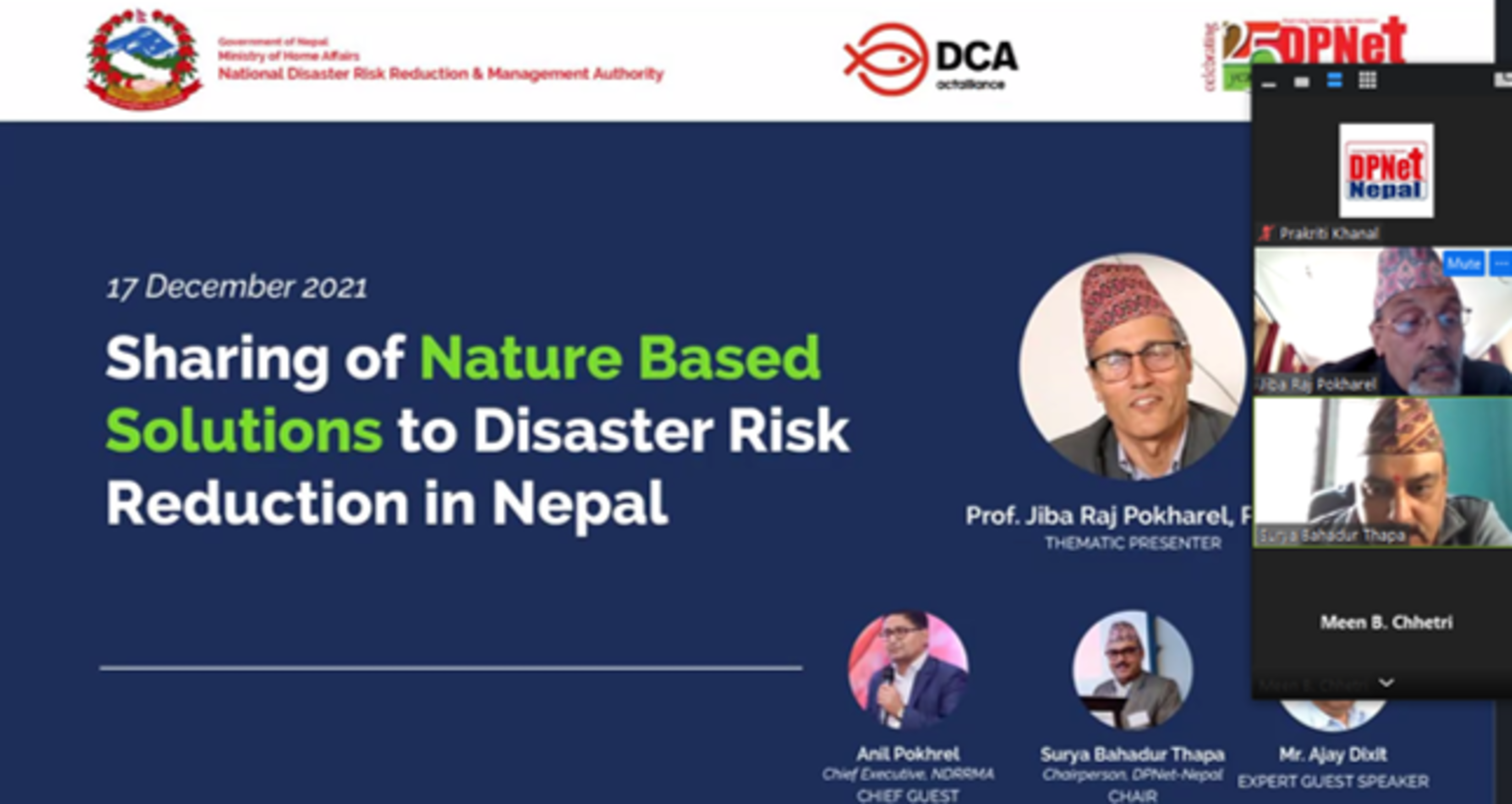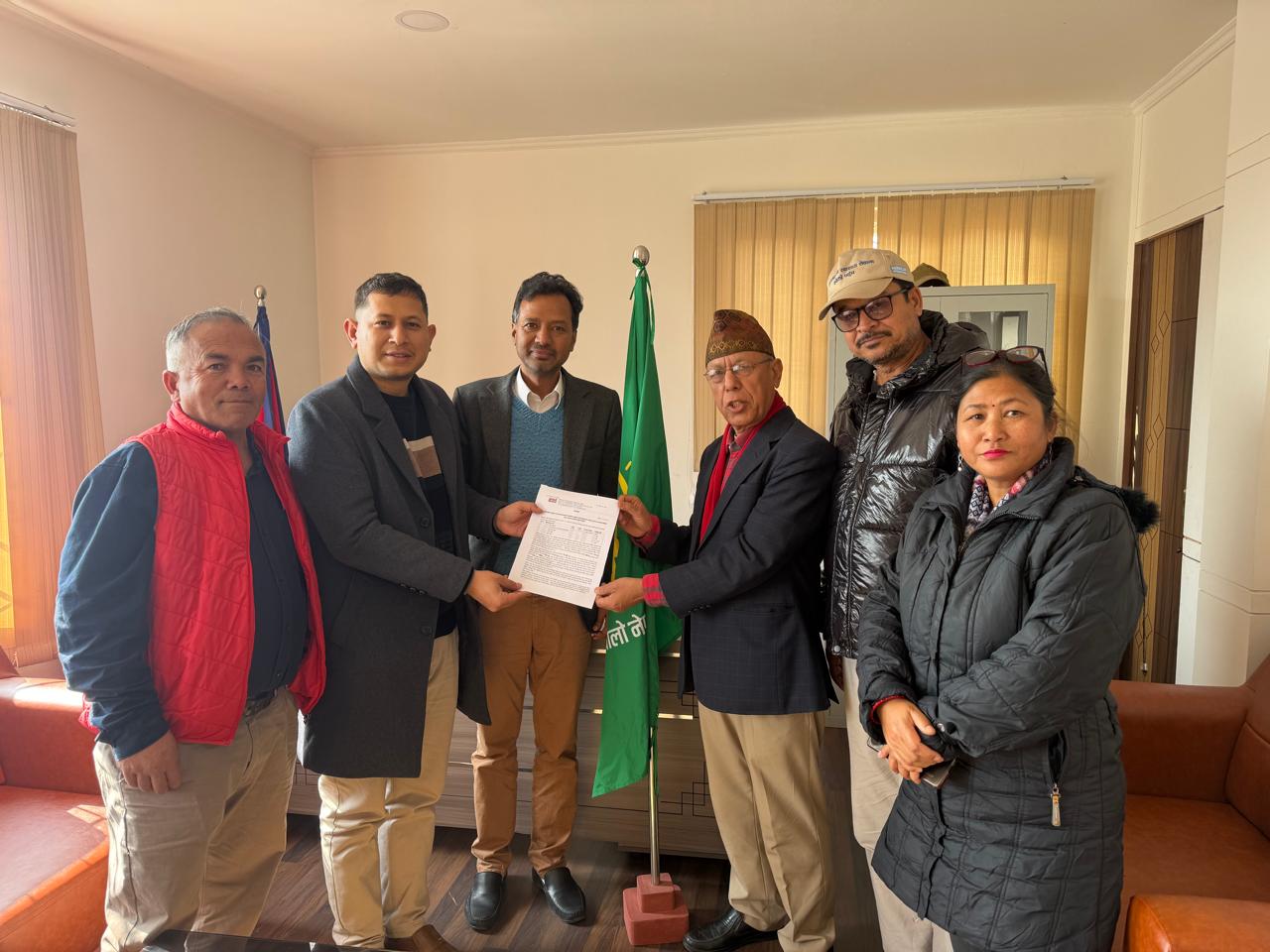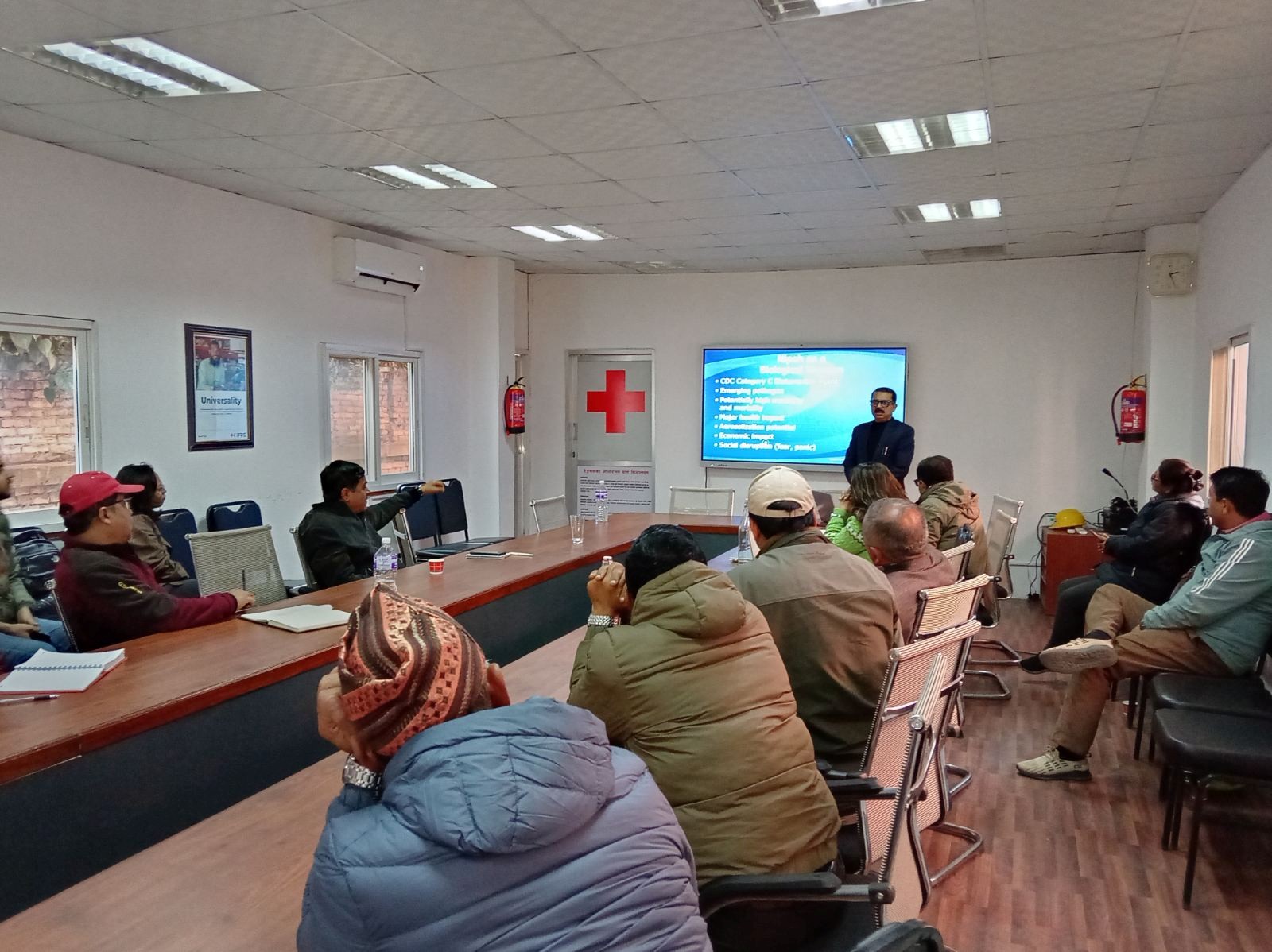Sharing of Nature Based Solutions to Disaster Risk Reduction in Nepal
Dec 26, 2021

The virtual sharing of Nature Based Solutions to Disaster Risk Reduction in Nepal was organized by DPNet Nepal in coordination with National Disaster Risk Reduction and Management Authority (NDRRMA) and DCA on 17th December, 2021. Dr. Raju Thapa, Vice Chairperson of DPNet gave the welcome remarks and highlighted the objectives with focus on Nature Based Solutions to DRR. He further shared the success about low cost landslide mitigation technology carried in Siranchok Municipality of Gorkha District. He said that we can contribute in disaster management by using indigenous practices as well. He highlighted the importance of pond construction in disaster risk reduction and management. The program was chaired by Mr. Surya Bahadur Thapa, Chairperson of DPNet. Altogether 48 participants joined the webinar.
Major Highlights
Major Highlights
- Prof. Dr. Jiba Raj Pokhrel Past Vice Chancellor of NAST and thematic presenter of the program, shared the presentation about “Nature Based Solutions for Disaster Risk Reduction in Nepal”. He shared the context and trend of disaster in Nepal. He shared about the introduction, principles, objectives, study methodology and examples of nature based solutions in Nepal. He further shared about engineering based solutions and practice of indigenous knowledge techniques in disaster. He shared the pond condition in Kharpa, Khotang, Mahottari and Tanahu districts and landslide condition of Gorkha district. He further shared his recommendations. He shared about the manual which includes pond size, reason to construct pond, suitable place to construct pond and further plan and section.
- Dr. Meen Poudyal Chhetri, said that the nature-based solutions i.e. restoration and protection of natural habitat when applied strategically and equitably can not only safeguard biodiversity and ecosystem services but also help people adapt to the effects of climate change. Nature based solution include the restoration of coastal ecosystems to protect communities from storm surges and erosion, agroforestry to stabilize crop yields in drier climates and forest restoration in headwaters and riparian zones to secure and regulate water supplies and protect communities from flooding, soil erosion, and landslides. Therefore, pond construction is one of the component of nature based solution.
- Mr. Rishi Acharya, Under Secretary from Ministry of Federal Affairs and General Administration (MoFAGA) highlighted the importance of nature based conservation in disaster risk reduction and management. He said that the local government should also mobilize community for the conservation of nature along with disaster management. He added that MoFAGA is working on disaster management, climate change, solid waste management, livelihood to make eco-friendly local government.
- Mr. Sundar Sharma, Under Secretary of NDRRMA shared the experiences of controlling upstream landslide by making series of dams. He shared the experiences of working on participation, people’s wellbeing, vegetative engineering and experience of using bamboo fencing, jute matting, plantation and other techniques which are also a kind of nature based solution. He shared about the earth removal process. He said that nature based solution will be more effective if there will be monitoring also. He also said that pond construction is very important for forest-fuel management which also helps to reduce forest fire.
Major Discussions
- Ponds inside the forest are useful to reduce soil erosion, landslides and forest fire as well.
- There are many factors for landslides such as geological factors, tectonic effects along with surface/ground water movement. So, it is necessary to address other nature based solutions as well.
- It was discussed about the stability of the pond because there is always movement of wild animals around the pond.
- It was discussed about ensuring prevention of accidents/ falling of children in the pond. There is importance of ladder/bamboo or any support inside the pond to prevent children and animals from drowning.
- It was discussed about the pond outburst flood disaster downstream.
- This sort of environmental friendly low cost technologies should be adopted nationally by regulating through local government.
- It was discussed about the condition of ponds that were constructed by governments before.
- There are many factors for landslides such as geological factors, tectonic effects along with surface/ground water. So, it is necessary to address other nature based solutions as well.
- Pond is definitely a cost effective solution for ecosystem restoration and a tool for achieving climate ambition.
Mr. Anil Pokhrel, Chief Executive of NDRRMA said that the nature based solution program was organized by NDRRMA for the first time in its history. Nature based solutions and pond construction gave very good learning. These types of learning helps as a solution to drought, flood and forest fire. The history, learning and experiences on nature based solutions could be linked with local level livelihood. Globally, nature based solutions are appropriate actions to reduce disaster risk, climate change effect and keep sustain. Many international agencies have raised good funds and green deals for climate change, disaster risk and other nature based solutions. He talked about scaling up these nature based actions with skills and learnings. E-learning manuals, physical training, experiences collection and audio visual documentation will be effective in knowledge sharing.
Mr. Surya Bahadur Thapa, Chairperson of DPNet said that, we can work effectively in future by learning the experiences and information shared in this nature based solution program. He finally gave vote thanks to the chief guest, guests, presenter and every participant and closed the program.
Mr. Surya Bahadur Thapa, Chairperson of DPNet said that, we can work effectively in future by learning the experiences and information shared in this nature based solution program. He finally gave vote thanks to the chief guest, guests, presenter and every participant and closed the program.











